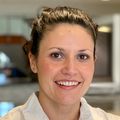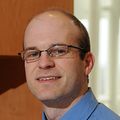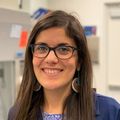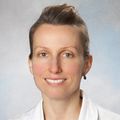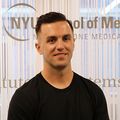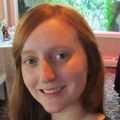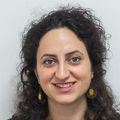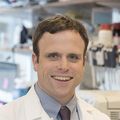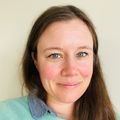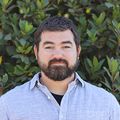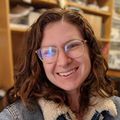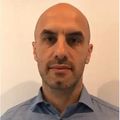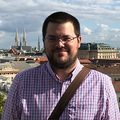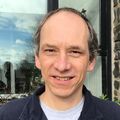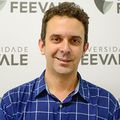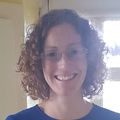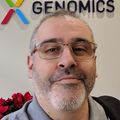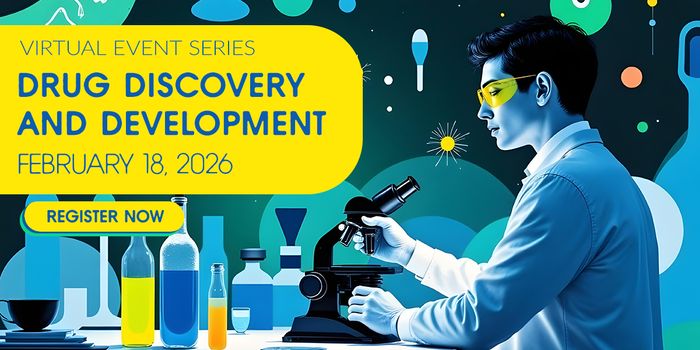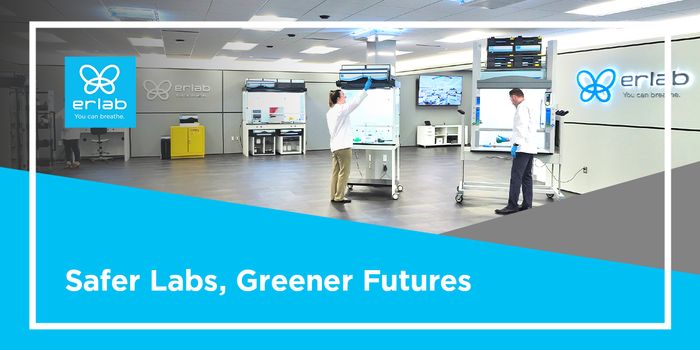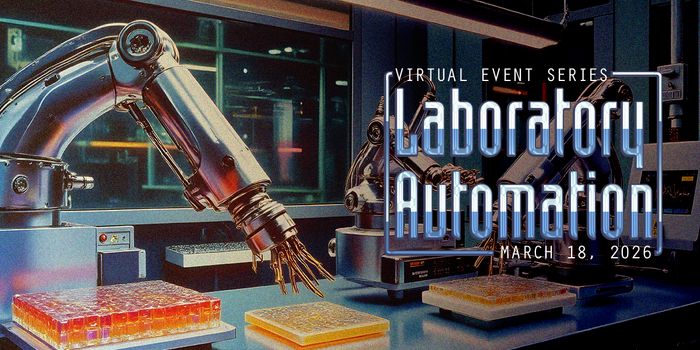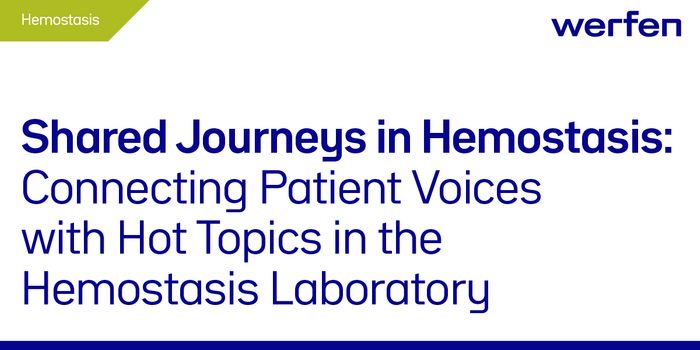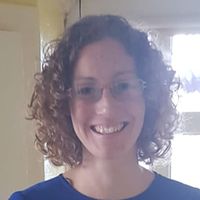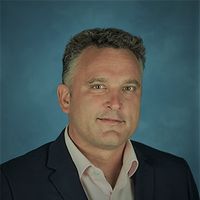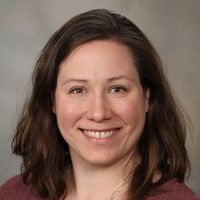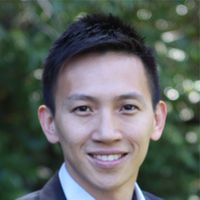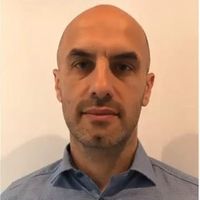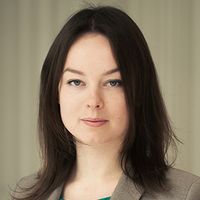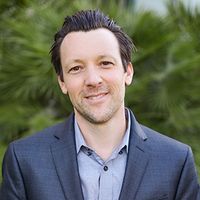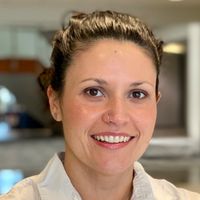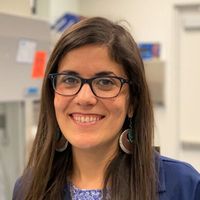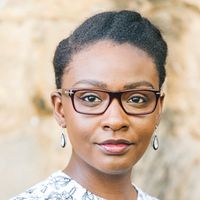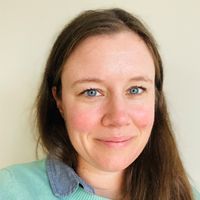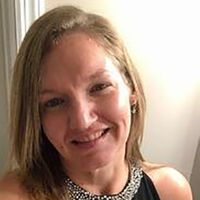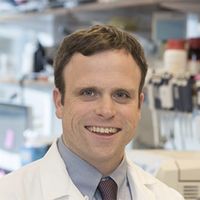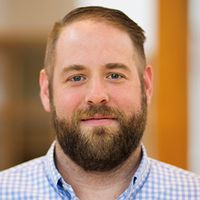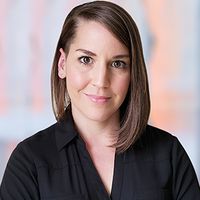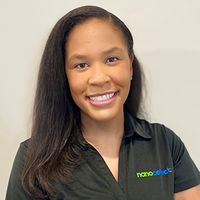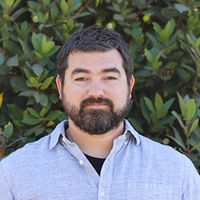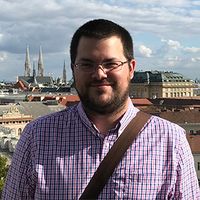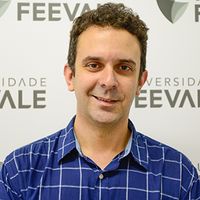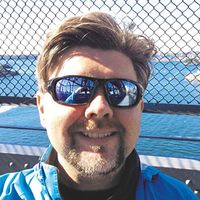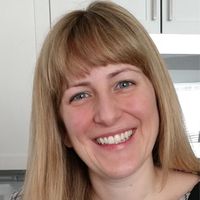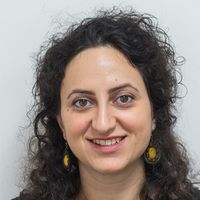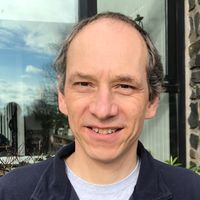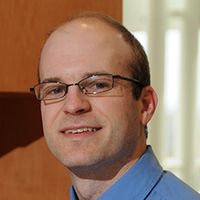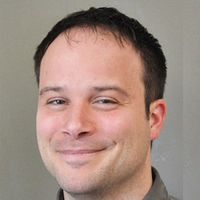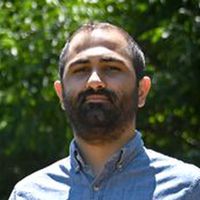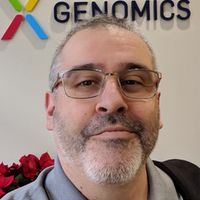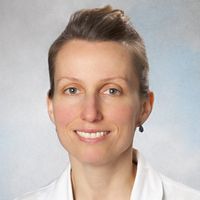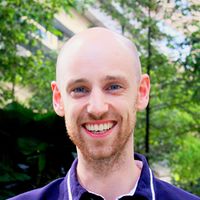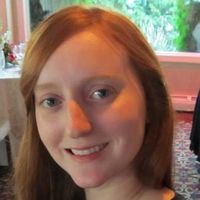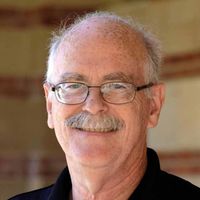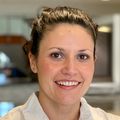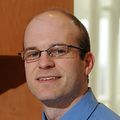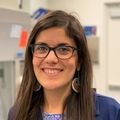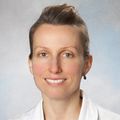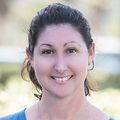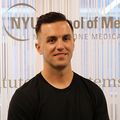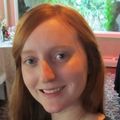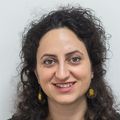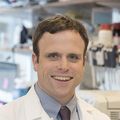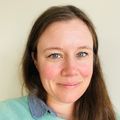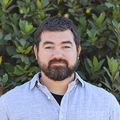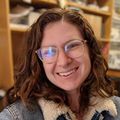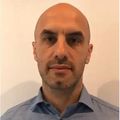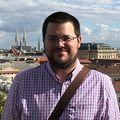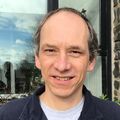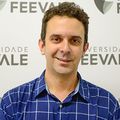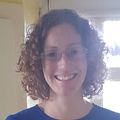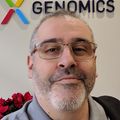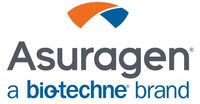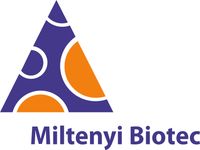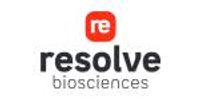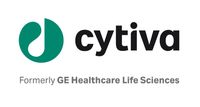Genetics Week Virtual Event Series 2021

LabRoots is excited to announce our 9th Annual Event in the Genetics Week Virtual Event Series held on April 20-22, 2021!
Genetics Week Virtual Event Series 2021 will offer a multi-day content-rich program combining stellar expertise from world-renowned keynote and featured speakers in the areas of Genetics & Genomics an expanding field of biology and human health, Molecular Diagnostics, exploring best laboratory practices and novel diagnostic applications, and Precision Medicine, spanning innovative technologies and solutions transforming healthcare and changing how patients are treated today.
Over the three days, invited lectures, thought-provoking discussions, and posters will be presented by academia and industry experts, professionals in medical and clinical genetics, scientific leaders, and research scholars.
This year's Genetics Week Virtual Event Series includes the following tracks:
Genetics and Genomics
Advancements in Genomic Technologies
- Genome Editing
- Single Cell Genomics
- Spatial Genomics
Sex, Epigenetics, Aging, and Disease
- Sex Differences in Disease
- Epigenetics Clock
New Approaches in the Genetics of Disease
- Improving GWAS through Functional Filtering
- Genetic Drivers of Regulatory Networks
- LRS to increase the solve rate of undiagnosed diseases
Long-read Sequencing
- Structural Variation
- Telomere-to-Telomere Genome Assemblies
- Full-length RNA-Sequencing & Isoform Identification
- Metagenomics (or complex populations)
Molecular Diagnostics
Emerging Technologies and Methodologies in Molecular Diagnostics
- Trends Towards Higher Complexity (PCR-NGS-single gene sequencing-panels-exome-WGS)
- High-throughput Technologies
- Customization and Increased Applicability of Panel Testing (respiratory infection pathogen panels)
- CRISPR-based Diagnostics
Liquid Biopsies (Cancer Monitoring and Screening)
- Kits and Panels
- Companion Diagnostics
Infectious Disease Diagnostics - COVID-19 Testing
- COVID-19 (Diagnostics: RT-PCR & Antigen)
- Antibody Testing
- Public Health and Screening
- FDA EUA Process & Evolvement
- Point of Care Testing
Precision Medicine
Therapeutics in Precision Medicine
- Gene Therapy / Nucleic Acid Modification
- Rare Disease / Orphan
- Current Status of Companion and Complementary Diagnostics
Precision Medicine in Clinical Practice
- Pharmacogenomics as a clinical tool
- Implementation and Adoption of precision medicine in routine clinical care
The Role of Technology in Precision Medicine
- Artificial Intelligence
- Software Tools
Our virtual conference allows you to participate in a global setting with no travel or cost to you. The event will remain open for 2 years from the date of the live event, and the webinars will be available for unlimited on-demand viewing. This virtual conference also offers increased reach for the global microbiology community with a high degree of interaction through live-streaming video and chat sessions.
Enjoy the interactive environment via live-streaming video and chat sessions with peers, and using the Leaderboard and Gamification to move around the entire event, earning points for a chance to win one of LabRoots most popular t-shirts.

Call for Posters — Virtual poster sessions offer the opportunity to present data to a global audience via a PDF poster and video summary and discuss results with interested colleagues through email. Plan now to have your poster included in the 2021 Genetics Virtual Week. Submit your free abstract here.
Continuing Education – LabRoots is approved as a provider of continuing education programs in the clinical laboratory sciences by the ASCLS P.A.C.E. ® Program. By attending this event, you can earn 1 Continuing Education credit per presentation for a maximum of 50 credits. This event will also provide CEU's for Genetic Counselors and is pending approval by the NSGC.
Use #LRgenetics to follow the conversation!
Agenda Share
-
APR 22, 2021 10:30 AM PDT
Extraction-free sensitive detection of viral RNA using direct RT-PCR chemistry
Donald Green
-
APR 22, 2021 9:00 AM PDT
Panel Presentation: DPYD Testing: Pharmacogenomics in a Clinical Setting
Precision Medicine in Clinic
Hannah Stevens, PhDClinical Scientist, Genomics, North West Genomic Labora...Holly Ellis, MSc, BARegistered Clinical Scientist, North West Genomic Labor... -
APR 22, 2021 7:30 AM PDT
Keynote Presentation: Moving Precision Medicine from 'Exotic' to 'Normal'
Precision Medicine in Clinic
Dr. Howard L. McLeod, FASCO, FCCP
Medical Director, Precision Medicine, Professor of Pharmacy and MedicineBIOGRAPHY -
APR 22, 2021 6:00 AM PDT
Panel Presentation: Powering the precision in "precision medicine" - The role of curated data, databases and knowledge: Does a gold standard exist?
Sponsored By: QIAGENLisa Barrow-LaingAssociate Staff Field Applications Scientist/Scientific...Shawn BauerDirector - Content Engineering, QDISimon Forbes, PhDHead of COSMIC, Wellcome Sanger Institute, Cambridge, U...Dominic JohnVP, Marketing & Clinical Product Mgmt, Digital Insights -
An Introduction to Resources Facilitating Cancer Variant Interpretation
The Role of Technology in Precision Medicine
Beth Pitel, M.S., CG(ASCP)CM
Assistant Professor and Senior Developer, Genomics Laboratory Mayo ClinicBIOGRAPHY -
Efficient Implementation of DPYD Testing Using an Institutional Genetics Data Repository
Precision Medicine in Clinic
Daniel L Hertz, PharmD, PhD
Assistant Professor, University of Michigan College of PharmacyBIOGRAPHY -
Laboratory Implementation of Clinical Genomics in Children
Precision Medicine in Clinic
Angshumoy Roy, MD, PhD
Associate Professor, Department of Pathology & Immunology, Baylor College of Medicine Director of Cancer Genomics, Texas Children's HospitalBIOGRAPHY -
Phenoconversion: The Achille's Heel of Personalized Medicine
Precision Medicine in Clinic
Behnaz Sarrami, MS, PharmD
Director of Consulting Missouri Pharmacogenomics Consulting, LLCBIOGRAPHY -
Using AI and Predictive Algorithms to Help Advanced Cancer Patients Identify the Best Treatment Options
The Role of Technology in Precision Medicine
-
APR 21, 2021 12:00 PM PDT
Directed evolution - shrinking the haystack with tailor-made synthetic DNA
Dr. Tobias Santl, PhD
Formulation Manufacturing Manager, Gene Evolution Library GroupBIOGRAPHYSponsored By: Thermo Fisher Scientific -
APR 21, 2021 10:30 AM PDT
Panel Presentation: Driving lab efficiency with PCR power
Sponsored By: Thermo Fisher ScientificMarija NavickaitėSr Product ManagerKyle HondorpSr Manager, Product Management -
APR 21, 2021 7:30 AM PDT
Panel Presentation: Next-Generation Sequencing in the Global Response to the COVID-19 Pandemic
Infectious Disease Diagnostics - COVID 19 - Testing
Michael Oberholzer, PhDAssociate Director, Product Management Infectious Disea...Eric Allen, MBA, M. Eng. BioengineeringDirector, Bioinformatics, Illumina -
APR 21, 2021 6:00 AM PDT
Keynote Presentation: High-throughput Diagnostics and Sequencing at the Pandemic Response Lab NYC
Infectious Disease Diagnostics - COVID 19 Testing
-
A Saliva-Based RT-PCR SARS-CoV-2 Detection Assay: Development and Deployment
Infectious Disease Diagnostics - COVID 19 Testing
-
Flex Analysis: A Safe, Integrated and Flexible Approach to Non-Invasive Aneuploidy Analysis
Emerging Technologies and Methodologies in Molecular Diagnostics
-
High Throughput Testing for SARS-CoV-2 and SNP Analysis for Variants of Concern
Infectious Disease Diagnostics - COVID 19 - Testing
Richard Michelmore
Distinguished Professor and Director, The Genome Center, Genome and Biomedical Sciences Facility, University of California, DavisBIOGRAPHY -
Hybrid Capture SARS-CoV-2 NGS Assay and COVID-Dx: a robust end to end solution for viral detection and surveillance of genetic variants
Infectious Disease Diagnostics - COVID 19- Testing
-
Liquid Biopsy-based Detection of Early Stage Gynecological Cancers
Liquid Biopsies (Cancer Monitoring and Screening)
-
Past, Present and Future of Engineered Cell Therapy
Emerging Technologies and Methodologies in Molecular Diagnostics
-
Saliva - based testing for SARS-CoV-2 diagnosis
Infectious Disease Diagnostics - COVID 19 Testing
-
Saliva pool testing: Fast, affordable, easy and highly accurate testing solution for returning back to school and work
Infectious Disease Diagnostics - COVID 19- Testing
-
The Importance of Hybrid-capture Technology to Recognize and Characterize Viral Threats
Emerging Technologies and Methodologies in Molecular Diagnostics
-
APR 20, 2021 4:30 PM PDT
Advancing AAV: Novel Synthesis and Sequencing Solutions for Gene Therapy Research
Andrea O'Hara, PhD
-
APR 20, 2021 4:30 PM PDT
High-throughput clinical and environmental viral extraction and sequencing
Christopher E. Mason, Ph.D
-
APR 20, 2021 3:00 PM PDT
Panel Presentation: Accelerating precision oncology with matched FFPE and plasma biospecimens characterized using Discovery's SpecimenSeq™ NGS Service and QIAGEN's QIAseq Multimodal Panels
Sponsored By: QIAGENDonald Skifter, PhD, MBASr. Vice President, Genomics, Discovery Life SciencesNathan Henson, MSProduct Manager, Biospecimens and Cell Services, Discov... -
APR 20, 2021 1:30 PM PDT
Panel Presentation: Attain successful single-cell sequencing results with the latest cell and nuclei isolation workflows
Sponsored By: Miltenyi BiotecCarina EmeryProduct Manager for Sample Preparation at Miltenyi Biot...Alina SteinbachProduct Manager for Flow Sorting at Miltenyi Biotec -
APR 20, 2021 12:00 PM PDT
High Viability Cell Sorting for Single-Cell 3' RNA-seq & 10x Genomics Applications
Nicole Jagnandan, PhD
Application Scientist, NanoCellect Biomedical, Inc.BIOGRAPHYSponsored By: NanoCellect Biomedical, Inc. -
APR 20, 2021 7:30 AM PDT
Keynote Presentation: A structural variation map of 499 Han Chinese individuals using long-read sequencing data
Long-read Sequencing
-
APR 20, 2021 6:00 AM PDT
Panel Presentation: Accelerating SARS-CoV-2 genomic surveillance with a new high-throughput NGS solution
Sponsored By: QIAGENFernando Spikli, PhDProfessor, Feevale University, Novo Hamburgo, BrazilBrian Dugan, M.S.Director, Global Product Management, Genomics QIAGEN -
Application of Long-read Sequencing in Human Genetics
Long-read Sequencing
Tychele Turner, Ph.D.
-
Cell type-specific vulnerability to traumatic brain injury
Advancements in Genomic Technologies
Araks Martirosyan, Ph.D.
Sr. Postdoctoral Researcher Laboratory of Glia Biology, VIB-KU Leuven Center for Brain and Disease ResearchBIOGRAPHY -
Deciphering Brain Mosaicism with Long-read Sequencing
Long-read Sequencing
Tracy Bedrosian, Ph.D.
Principal investigator, Nationwide Children's Hospital; Assistant Professor of Pediatrics, The Ohio State University College of MedicineBIOGRAPHY -
Defining Cellular Heterogeneity and Cell-Type Specific Pathogenesis in the Retina Using Single Cell RNA-Sequencing
Advancements in Genomic Technologies
David Simpson, PhD
Reader, Wellcome-Wolfson Institute for Experimental Medicine, Queen's University BelfastBIOGRAPHY -
Developing disease insights with genotype-specific regulatory networks
New Approaches in the Genetics of Disease
John Platig, PhD
Instructor, Channing Division of Network Medicine, Brigham and Women's Hospital, Harvard Medical SchoolBIOGRAPHY -
Epigenetic Aging Studies in Mammals
Sex, Epigenetics, Aging, and Disease
-
Illuminating Biology with Spatially Resolved, Single-cell Transcriptomics
Advancements in Genomic Technologies
-
Long-read Genome Sequencing for the Molecular Diagnosis of Neurodevelopmental Disorders
Long-read Sequencing
-
Low error rate long-reads enable the identification of long variant haplotypes in metagenome assemblies
Long-read Sequencing
Derek Bickhart, PhD
Research Microbiologist/Bioinformatician, US Department of Agriculture's Dairy Forage Research CenterBIOGRAPHY -
Measurement of DNA Methylation and Nuclear Organization with Nanopore Sequencing
Long-read Sequencing
-
Practical Considerations and Best Practices for Single Cell and Spatial Transcriptomics
Advancements in Genomic Technologies
-
Sequencing the genome: from genotype to phenotype and a few extras in between
New Approaches in the Genetics of Disease
Rasika Mathias, ScD
Professor of Medicine, Johns Hopkins, University Director of Genomics, GeneSTAR Research program, General Internal Medicine, Miller-Coulson Family Human Aging Project Scholar...BIOGRAPHY -
Sex, Gender, the Aging Lung: Epigenetic Findings in COPD
Sex, Epigenetics, Aging, and Disease
Dawn DeMeo, M.D., M.P.H.
Associate Professor of Medicine, Harvard Medical School, Associate Physician, Brigham and Women's Hospital, Department of MedicineBIOGRAPHY -
Studying Promoter and Isoform Diversity with Long-Read Transcriptome Sequencing
Long-read Sequencing
-
Telomere-to-Telomere Chromosome Assemblies: New Insights Into Genome Biology and Structure
Long-read Sequencing
Karen Miga, PhD
Assistant Research Scientist; UCSC Genomics Institute, University of California, Santa CruzBIOGRAPHY -
The Structure, Function, and Evolution of Human Chromosome 8
Long-read Sequencing
Glennis Logsdon, PhD
Postdoctoral Research Fellow, Department of Genome Sciences University of WashingtonBIOGRAPHY -
Towards a Comprehensive Variation Benchmark for Medically-Relevant Autosomal Genes
Long-read Sequencing
-
X Chromosome Factors that Contribute to Sex Differences in Disease
Sex, Epigenetics, Aging, and Disease
Arthur P. Arnold, PhD
Distinguished Research Professor, Department of Integrative Biology and Physiology, University of California, Los AngelesBIOGRAPHY
- Genomics
- New Approaches in the Genetics of Disease
-
Developing disease insights with genotype-specific regulatory networks
New Approaches in the Genetics of Disease
John Platig, PhD
Instructor, Channing Division of Network Medicine, Brigham and Women's Hospital, Harvard Medical SchoolBIOGRAPHY -
Sequencing the genome: from genotype to phenotype and a few extras in between
New Approaches in the Genetics of Disease
Rasika Mathias, ScD
Professor of Medicine, Johns Hopkins, University Director of Genomics, GeneSTAR Research program, General Internal Medicine, Miller-Coulson Family Human Aging Project Scholar...BIOGRAPHY - Long-read Sequencing
-
The Structure, Function, and Evolution of Human Chromosome 8
Long-read Sequencing
Glennis Logsdon, PhD
Postdoctoral Research Fellow, Department of Genome Sciences University of WashingtonBIOGRAPHY -
Application of Long-read Sequencing in Human Genetics
Long-read Sequencing
Tychele Turner, Ph.D.
-
Long-read Genome Sequencing for the Molecular Diagnosis of Neurodevelopmental Disorders
Long-read Sequencing
-
Deciphering Brain Mosaicism with Long-read Sequencing
Long-read Sequencing
Tracy Bedrosian, Ph.D.
Principal investigator, Nationwide Children's Hospital; Assistant Professor of Pediatrics, The Ohio State University College of MedicineBIOGRAPHY -
Low error rate long-reads enable the identification of long variant haplotypes in metagenome assemblies
Long-read Sequencing
Derek Bickhart, PhD
Research Microbiologist/Bioinformatician, US Department of Agriculture's Dairy Forage Research CenterBIOGRAPHY -
Studying Promoter and Isoform Diversity with Long-Read Transcriptome Sequencing
Long-read Sequencing
-
Towards a Comprehensive Variation Benchmark for Medically-Relevant Autosomal Genes
Long-read Sequencing
-
Measurement of DNA Methylation and Nuclear Organization with Nanopore Sequencing
Long-read Sequencing
-
Telomere-to-Telomere Chromosome Assemblies: New Insights Into Genome Biology and Structure
Long-read Sequencing
Karen Miga, PhD
Assistant Research Scientist; UCSC Genomics Institute, University of California, Santa CruzBIOGRAPHY -
APR 20, 2021 7:30 AM PDT
Keynote Presentation: A structural variation map of 499 Han Chinese individuals using long-read sequencing data
Long-read Sequencing
- Advancements in Genomic Technologies
-
Cell type-specific vulnerability to traumatic brain injury
Advancements in Genomic Technologies
Araks Martirosyan, Ph.D.
Sr. Postdoctoral Researcher Laboratory of Glia Biology, VIB-KU Leuven Center for Brain and Disease ResearchBIOGRAPHY -
Practical Considerations and Best Practices for Single Cell and Spatial Transcriptomics
Advancements in Genomic Technologies
-
Illuminating Biology with Spatially Resolved, Single-cell Transcriptomics
Advancements in Genomic Technologies
-
Defining Cellular Heterogeneity and Cell-Type Specific Pathogenesis in the Retina Using Single Cell RNA-Sequencing
Advancements in Genomic Technologies
David Simpson, PhD
Reader, Wellcome-Wolfson Institute for Experimental Medicine, Queen's University BelfastBIOGRAPHY - Sex, Epigenetics, Aging, and Disease
-
Sex, Gender, the Aging Lung: Epigenetic Findings in COPD
Sex, Epigenetics, Aging, and Disease
Dawn DeMeo, M.D., M.P.H.
Associate Professor of Medicine, Harvard Medical School, Associate Physician, Brigham and Women's Hospital, Department of MedicineBIOGRAPHY -
X Chromosome Factors that Contribute to Sex Differences in Disease
Sex, Epigenetics, Aging, and Disease
Arthur P. Arnold, PhD
Distinguished Research Professor, Department of Integrative Biology and Physiology, University of California, Los AngelesBIOGRAPHY -
Epigenetic Aging Studies in Mammals
Sex, Epigenetics, Aging, and Disease
-
APR 20, 2021 6:00 AM PDT
Panel Presentation: Accelerating SARS-CoV-2 genomic surveillance with a new high-throughput NGS solution
Sponsored By: QIAGENFernando Spikli, PhDProfessor, Feevale University, Novo Hamburgo, BrazilBrian Dugan, M.S.Director, Global Product Management, Genomics QIAGEN -
APR 20, 2021 12:00 PM PDT
High Viability Cell Sorting for Single-Cell 3' RNA-seq & 10x Genomics Applications
Nicole Jagnandan, PhD
Application Scientist, NanoCellect Biomedical, Inc.BIOGRAPHYSponsored By: NanoCellect Biomedical, Inc. -
APR 20, 2021 1:30 PM PDT
Panel Presentation: Attain successful single-cell sequencing results with the latest cell and nuclei isolation workflows
Sponsored By: Miltenyi BiotecCarina EmeryProduct Manager for Sample Preparation at Miltenyi Biot...Alina SteinbachProduct Manager for Flow Sorting at Miltenyi Biotec -
APR 20, 2021 3:00 PM PDT
Panel Presentation: Accelerating precision oncology with matched FFPE and plasma biospecimens characterized using Discovery's SpecimenSeq™ NGS Service and QIAGEN's QIAseq Multimodal Panels
Sponsored By: QIAGENDonald Skifter, PhD, MBASr. Vice President, Genomics, Discovery Life SciencesNathan Henson, MSProduct Manager, Biospecimens and Cell Services, Discov... -
APR 20, 2021 4:30 PM PDT
High-throughput clinical and environmental viral extraction and sequencing
Christopher E. Mason, Ph.D
- Molecular Diagnostics
- Infectious Disease Diagnostics - COVID 19- Testing
-
Saliva pool testing: Fast, affordable, easy and highly accurate testing solution for returning back to school and work
Infectious Disease Diagnostics - COVID 19- Testing
-
Hybrid Capture SARS-CoV-2 NGS Assay and COVID-Dx: a robust end to end solution for viral detection and surveillance of genetic variants
Infectious Disease Diagnostics - COVID 19- Testing
- Infectious Disease Diagnostics - COVID 19 - Testing
-
High Throughput Testing for SARS-CoV-2 and SNP Analysis for Variants of Concern
Infectious Disease Diagnostics - COVID 19 - Testing
Richard Michelmore
Distinguished Professor and Director, The Genome Center, Genome and Biomedical Sciences Facility, University of California, DavisBIOGRAPHY -
APR 21, 2021 7:30 AM PDT
Panel Presentation: Next-Generation Sequencing in the Global Response to the COVID-19 Pandemic
Infectious Disease Diagnostics - COVID 19 - Testing
Michael Oberholzer, PhDAssociate Director, Product Management Infectious Disea...Eric Allen, MBA, M. Eng. BioengineeringDirector, Bioinformatics, Illumina - Liquid Biopsies (Cancer Monitoring and Screening)
-
Liquid Biopsy-based Detection of Early Stage Gynecological Cancers
Liquid Biopsies (Cancer Monitoring and Screening)
- Emerging Technologies and Methodologies in Molecular Diagnostics
-
Past, Present and Future of Engineered Cell Therapy
Emerging Technologies and Methodologies in Molecular Diagnostics
-
Flex Analysis: A Safe, Integrated and Flexible Approach to Non-Invasive Aneuploidy Analysis
Emerging Technologies and Methodologies in Molecular Diagnostics
-
The Importance of Hybrid-capture Technology to Recognize and Characterize Viral Threats
Emerging Technologies and Methodologies in Molecular Diagnostics
- Infectious Disease Diagnostics - COVID 19 Testing
-
A Saliva-Based RT-PCR SARS-CoV-2 Detection Assay: Development and Deployment
Infectious Disease Diagnostics - COVID 19 Testing
-
Saliva - based testing for SARS-CoV-2 diagnosis
Infectious Disease Diagnostics - COVID 19 Testing
-
APR 21, 2021 6:00 AM PDT
Keynote Presentation: High-throughput Diagnostics and Sequencing at the Pandemic Response Lab NYC
Infectious Disease Diagnostics - COVID 19 Testing
-
APR 21, 2021 10:30 AM PDT
Panel Presentation: Driving lab efficiency with PCR power
Sponsored By: Thermo Fisher ScientificMarija NavickaitėSr Product ManagerKyle HondorpSr Manager, Product Management -
APR 21, 2021 12:00 PM PDT
Directed evolution - shrinking the haystack with tailor-made synthetic DNA
Dr. Tobias Santl, PhD
Formulation Manufacturing Manager, Gene Evolution Library GroupBIOGRAPHYSponsored By: Thermo Fisher Scientific - Precision Medicine
- Precision Medicine in Clinic
-
Laboratory Implementation of Clinical Genomics in Children
Precision Medicine in Clinic
Angshumoy Roy, MD, PhD
Associate Professor, Department of Pathology & Immunology, Baylor College of Medicine Director of Cancer Genomics, Texas Children's HospitalBIOGRAPHY -
Efficient Implementation of DPYD Testing Using an Institutional Genetics Data Repository
Precision Medicine in Clinic
Daniel L Hertz, PharmD, PhD
Assistant Professor, University of Michigan College of PharmacyBIOGRAPHY -
Phenoconversion: The Achille's Heel of Personalized Medicine
Precision Medicine in Clinic
Behnaz Sarrami, MS, PharmD
Director of Consulting Missouri Pharmacogenomics Consulting, LLCBIOGRAPHY -
APR 22, 2021 7:30 AM PDT
Keynote Presentation: Moving Precision Medicine from 'Exotic' to 'Normal'
Precision Medicine in Clinic
Dr. Howard L. McLeod, FASCO, FCCP
Medical Director, Precision Medicine, Professor of Pharmacy and MedicineBIOGRAPHY -
APR 22, 2021 9:00 AM PDT
Panel Presentation: DPYD Testing: Pharmacogenomics in a Clinical Setting
Precision Medicine in Clinic
Hannah Stevens, PhDClinical Scientist, Genomics, North West Genomic Labora...Holly Ellis, MSc, BARegistered Clinical Scientist, North West Genomic Labor... - The Role of Technology in Precision Medicine
-
Using AI and Predictive Algorithms to Help Advanced Cancer Patients Identify the Best Treatment Options
The Role of Technology in Precision Medicine
-
An Introduction to Resources Facilitating Cancer Variant Interpretation
The Role of Technology in Precision Medicine
Beth Pitel, M.S., CG(ASCP)CM
Assistant Professor and Senior Developer, Genomics Laboratory Mayo ClinicBIOGRAPHY
Speakers Share
-
Suzie Alarcon, CGMBS, MB(ASCP)ᶜᴹ
NGS Core Manager La Jolla Institute for Immunology
BIOGRAPHY
-
Eric Allen, MBA, M. Eng. Bioengineering
Director, Bioinformatics, Illumina
BIOGRAPHY
-
Orchid Allicock, PhD
Postdoctoral Research Associate, Yale School of Public Health
BIOGRAPHY
-
Arthur P. Arnold, PhD
Distinguished Research Professor, Department of Integrative Biology and Physiology, University of California, Los Angeles
BIOGRAPHY
-
Lisa Barrow-Laing
Associate Staff Field Applications Scientist/Scientific Liaison
BIOGRAPHY
-
Shawn Bauer
Director - Content Engineering, QDI
BIOGRAPHY
-
Tracy Bedrosian, Ph.D.
Principal investigator, Nationwide Children's Hospital; Assistant Professor of Pediatrics, The Ohio State University College of Medicine
BIOGRAPHY
-
Derek Bickhart, PhD
Research Microbiologist/Bioinformatician, US Department of Agriculture's Dairy Forage Research Center
BIOGRAPHY
-
Matthew C. Forman, PhD
Head of Bioinformatics & Software, Yourgene Health
BIOGRAPHY
-
Gregory Cooper, PhD
Faculty Investigator, HudsonAlpha Institute for Biotechnology
BIOGRAPHY
-
Mara Couto-Rodriguez
Director of Research and Development, Biotia, Inc
BIOGRAPHY
-
Dawn DeMeo, M.D., M.P.H.
Associate Professor of Medicine, Harvard Medical School, Associate Physician, Brigham and Women's Hospital, Department of Medicine
BIOGRAPHY
-
Brian Dugan, M.S.
Director, Global Product Management, Genomics QIAGEN
BIOGRAPHY
-
Holly Ellis, MSc, BA
Registered Clinical Scientist, North West Genomic Laboratory Hub (Liverpool) Manchester Centre for Genomic Medicine Liverpool Women's Hospital
BIOGRAPHY
-
Carina Emery
Product Manager for Sample Preparation at Miltenyi Biotec
BIOGRAPHY
-
Simon Forbes, PhD
Head of COSMIC, Wellcome Sanger Institute, Cambridge, UK
BIOGRAPHY
-
Jonathan Göke
Group leader, Genome Institute of Singapore
BIOGRAPHY
-
Donald Green
Senior Field Application Specialist, Genomics and Diagnostics, Cytiva
BIOGRAPHY
-
Jiang He
Co-founder and Director of Scientific Affairs, Vizgen
BIOGRAPHY
-
Nathan Henson, MS
Product Manager, Biospecimens and Cell Services, Discovery Life Sciences
BIOGRAPHY
-
Kyle Hondorp
Sr Manager, Product Management
BIOGRAPHY
-
Steve Horvath
David Geffen School of Medicine, University of California, Los Angeles
BIOGRAPHY
-
Nicole Jagnandan, PhD
Application Scientist, NanoCellect Biomedical, Inc.
BIOGRAPHY
-
Dominic John
VP, Marketing & Clinical Product Mgmt, Digital Insights
BIOGRAPHY
-
Daniel L Hertz, PharmD, PhD
Assistant Professor, University of Michigan College of Pharmacy
BIOGRAPHY
-
Dr. Howard L. McLeod, FASCO, FCCP
Medical Director, Precision Medicine, Professor of Pharmacy and Medicine
BIOGRAPHY
-
Jon M. Laurent, PhD
Director, Pandemic Response Labs
BIOGRAPHY
-
Glennis Logsdon, PhD
Postdoctoral Research Fellow, Department of Genome Sciences University of Washington
BIOGRAPHY
-
Araks Martirosyan, Ph.D.
Sr. Postdoctoral Researcher Laboratory of Glia Biology, VIB-KU Leuven Center for Brain and Disease Research
BIOGRAPHY
-
Christopher E. Mason, Ph.D
Associate Professor; Director, WorldQuant Initiative for Quantitative Prediction, Weill Cornell Medicine
BIOGRAPHY
-
Rasika Mathias, ScD
Professor of Medicine, Johns Hopkins, University Director of Genomics, GeneSTAR Research program, General Internal Medicine, Miller-Coulson Family Human Aging Project Scholar...
BIOGRAPHY
-
Richard Michelmore
Distinguished Professor and Director, The Genome Center, Genome and Biomedical Sciences Facility, University of California, Davis
BIOGRAPHY
-
Karen Miga, PhD
Assistant Research Scientist; UCSC Genomics Institute, University of California, Santa Cruz
BIOGRAPHY
-
Marija Navickaitė
Sr Product Manager
BIOGRAPHY
-
Lesley E. Northrop, PhD, FACMG
Chief Diagnostic Officer, Everly Health
BIOGRAPHY
-
Rebecca Nugent, PhD
Senior Director of BioPharma Product Strategy Twist Bioscience
BIOGRAPHY
-
Andrea O'Hara, PhD
Strategic Technical Specialist, GENEWIZ, A Brooks Life Sciences Company
BIOGRAPHY
-
Michael Oberholzer, PhD
Associate Director, Product Management Infectious Disease & Microbiology, Illumina
BIOGRAPHY
-
Cory Padilla, PhD
Head of Scientific Affairs, Dovetail Genomics
BIOGRAPHY
-
Joseph Pearson, PhD
Global Product Manger, QIAGEN Digital Insights
BIOGRAPHY
-
Beth Pitel, M.S., CG(ASCP)CM
Assistant Professor and Senior Developer, Genomics Laboratory Mayo Clinic
BIOGRAPHY
-
John Platig, PhD
Instructor, Channing Division of Network Medicine, Brigham and Women's Hospital, Harvard Medical School
BIOGRAPHY
-
Prem Premsrirut, MD, PhD
Co-Founder, President and CEO, Mirimus, Inc.
BIOGRAPHY
-
Roham Razaghi, PhD Candidate
Department of Biomedical Engineering John Hopkins University
BIOGRAPHY
-
Fairlie Reese, PhD Student
Mortazavi lab, The University of California, Irvine
BIOGRAPHY
-
Angshumoy Roy, MD, PhD
Associate Professor, Department of Pathology & Immunology, Baylor College of Medicine Director of Cancer Genomics, Texas Children's Hospital
BIOGRAPHY
-
Dr. Tobias Santl, PhD
Formulation Manufacturing Manager, Gene Evolution Library Group
BIOGRAPHY
-
Behnaz Sarrami, MS, PharmD
Director of Consulting Missouri Pharmacogenomics Consulting, LLC
BIOGRAPHY
-
Fritz Sedlazeck, PhD
Associate Professor, Baylor College of Medicine and Rice University
BIOGRAPHY
-
David Simpson, PhD
Reader, Wellcome-Wolfson Institute for Experimental Medicine, Queen's University Belfast
BIOGRAPHY
-
Donald Skifter, PhD, MBA
Sr. Vice President, Genomics, Discovery Life Sciences
BIOGRAPHY
-
Fernando Spikli, PhD
Professor, Feevale University, Novo Hamburgo, Brazil
BIOGRAPHY
-
Alina Steinbach
Product Manager for Flow Sorting at Miltenyi Biotec
BIOGRAPHY
-
Hannah Stevens, PhD
Clinical Scientist, Genomics, North West Genomic Laboratory Hub (Liverpool)
BIOGRAPHY
-
Tychele Turner, Ph.D.
Assistant Professor, Department of Genetics, Washington University in St. Louis
BIOGRAPHY
-
Justin Wagner, PhD
Computer Scientist, NIST
BIOGRAPHY
-
Neil Winegarden, MSc
Staff Field Application Scientist, 10X Genomics
BIOGRAPHY
-
Kenny Wong, MS CGC
Chief Product Officer, xCures
BIOGRAPHY
-
Twist Bioscience
As the scientific community races to solve this evolving global health crisis, Twist Bioscience is proud to carry on as an active partner for all of your research needs. Twist's unique silicon-based DNA writing platform allows for the rapid development of NGS panels for viral ...
See more -
Thermo Fisher Scientific
Thermo Fisher Scientific Inc. (NYSE: TMO) is the world leader in serving science, with annual revenue of over $40 billion. Our Mission is to enable our customers to make the world healthier, cleaner and safer. Whether our customers are accelerating life sciences research, solving ...
See more -
Dovetail Genomics
Dovetail Genomics was founded in 2013, as an early-stage genomics company. Since that time, our goal has been clear-to transform genomics by making long-range information readily accessible to all. We are the creators of the ChicagoTM method, an in vitro proximity ligation ...
See more -
Asuragen
Asuragen is a molecular diagnostic product company changing the way patients are treated in genetics and oncology. Asuragen's diagnostic systems, composed of proprietary chemistry and software, deliver powerful answers using broadly installed instrument platforms. They are simple ...
See more -
Miltenyi Biotec
For over 30 years, Miltenyi Biotec has been a leader in the development of products that empower the advancement of biomedical research and enable cell and gene therapy. We provide innovative tools to help with your sample preparation, cell isolation, cell culture, and cell ...
See more -
Resolve Biosciences
Resolve Biosciences is applying the power of Molecular Cartography to enable scientists to gain new insights based on the highest-resolution view of single-cell spatial biology. The platform features the company's proprietary, multiplexed, single-molecule detection technology ...
See more -
NanoCellect Biomedical, Inc.
NanoCellect is committed to empowering every scientist to make discoveries one cell at a time, with modern and simple technologies for cell based assays. Our microfluidic flow cytometry platforms enable biomedical scientists to analyze and sort cells required for drug discovery ...
See more
Continuing Education Credits Share
The speakers below have been approved for Continuing Education Credits. To redeem your credits, locate the presentation you watched and click on the CE buttons for further direction. For more general information regarding continuing education, the processes to receive credits, and the accreditation bodies, Click here
-
John Platig, PhD
Instructor, Channing Division of Network Medicine, Brigham and Women's Hospital, Harvard Medical SchoolPresented at: Genetics Week Virtual Event Series 2021 -
Tracy Bedrosian, Ph.D.
Principal investigator, Nationwide Children's Hospital; Assistant Professor of Pediatrics, The Ohio State University College of MedicinePresented at: Genetics Week Virtual Event Series 2021 -
Derek Bickhart, PhD
Research Microbiologist/Bioinformatician, US Department of Agriculture's Dairy Forage Research CenterPresented at: Genetics Week Virtual Event Series 2021 -
Karen Miga, PhD
Assistant Research Scientist; UCSC Genomics Institute, University of California, Santa CruzPresented at: Genetics Week Virtual Event Series 2021 -
APR 20, 2021 7:30 AM PDTFritz Sedlazeck, PhD
Associate Professor, Baylor College of Medicine and Rice UniversityPresented at: Genetics Week Virtual Event Series 2021 -
APR 20, 2021 4:30 PM PDTChristopher E. Mason, Ph.D
Associate Professor; Director, WorldQuant Initiative for Quantitative Prediction, Weill Cornell MedicinePresented at: Genetics Week Virtual Event Series 2021Sponsored By: Tecan
Program Committee Share
-
Shawn Baker
Dr. Shawn C. Baker is the Chief Science Officer and co-founder of AllSeq. Having received his Ph.D. at the University of California - Davis, he started his career as a Research Scientist at Illumina when it was a 15-person startup. After spending several years at the bench ...
See more -
Agnieszka Caruso
Agnieszka is the Founder of geneIQ. She obtained her PhD at the University of Queensland in Australia in a field of biochemistry, and subsequently worked as a post-doctoral fellow at Queen's University of Belfast, University of Queensland and Institute for Molecular Biosciences ...
See more -
Sarah Elsea
Dr. Sarah H. Elsea is an Associate Professor of Molecular and Human Genetics at Baylor College of Medicine and is Senior Division Director of Biochemical Genetics at Baylor Genetics. Dr. Elsea earned a B.S. in chemistry from Missouri State University and Ph.D. in biochemistry ...
See more -
Emily Hollister
Emily Hollister is the Director, R&D, Computational Biology for Diversigen. An accomplished microbial ecologist, her microbiome experience ranges from soils and biofuel production systems to the human microbiome and pre-clinical disease models. She leads a team of ...
See more -
Eugean Jiwanmall
Eugean Jiwanmall's past professional experiences include basic science and clinical research. In his current role as a Senior Research Analyst for Medical Policy & Technology Evaluation at Independence Blue Cross' Claim Payment Policy Department within Facilitated Health ...
See more -
Mark Kiel, PhD
Dr. Mark Kiel is Co-Founder and Chief Science Officer at Genomenon, where he oversees the company's scientific direction and product development. After spending 15 years preparing for a life of academic research, Mark became convinced that revolutionary change in genomics was ...
See more -
Jonas Korlach
Jonas Korlach was appointed Chief Scientific Officer of Pacific Biosciences in July 2012. He was previously a Scientific Fellow, supporting commercial development of the PacBio RS II system and performing research aimed at developing new applications for SMRT technologies. He ...
See more -
Tatjana Matejic
Tatjana is an immunologist with more than two decades of experience working at biotech and pharma companies from start-ups to large global corporations ( Pfizer,Inc. being the latest), contributing significantly to team efforts and successes of more than thirty early and clinical ...
See more -
Molly McGinniss
Molly McGinniss, MS, CGC, is Senior Director of Client and Partner Relations for Population Genomics at Genome Medical, a digital health company and specialty medical group focused on genetics and genomics. Through the Genome Medical Precision Insights team, she provides ...
See more -
John Quackenbush
John Quackenbush is Professor of Computational Biology and Bioinformatics and Chair of the Department of Biostatistics at the Harvard TH Chan School of Public Health and Professor at the Dana-Farber Cancer Institute. John's PhD was in Theoretical Physics but a fellowship to work ...
See more -
Fritz Sedlazeck
Dr. Fritz Sedlazeck completed his PhD in 2012 in the group of Dr. Arndt von Haeseler at the Max F. Perutz Laboratory in Vienna. After a two year postdoc, he transitioned to the lab of Dr. Michael Schatz at Cold Spring Harbor Laboratory and later to Johns Hopkins University. Since ...
See more -
Tao Wu
Dr. Tao Wu received his B.S. from Nankai University a leading academic institution in China. In his last year at college, his reading of "What Is Life? The Physical Aspect of the Living Cell" (by physicist Erwin Schrödinger, 1944) inspired him to pursue a career in deciphering ...
See more -
Dorottya Nagy-Szakal, MD PhD
Dorottya earned her MD and PhD in clinical medicine from Semmelweis University of Medicine in Hungary. Holding postdoctoral fellowships at Baylor College of Medicine/Texas Children's Hospital and Columbia University, she has 10+ years of experience in translational medicine ...
See more -
Louisa Ive, MSc HCPC
Louisa Ive, MSc HCPC, received her undergraduate education at University College London, London and completed her Clinical Scientist training at St George's University Hospital, London. She is a practicing Clinical Scientist, certified by the Health & Care Professions Council and ...
See more -
Medhat Mahmoud, PhD
Degree: Ph.D. in Biochemistry, Institute of Bioorganic Chemistry, Polish Academy of Science, Poznań, Poland. Postdoc fellow in Human Genome Sequencing Center, Baylor College of Medicine... Interests: I'm interested in studying genomic variants and their effect, including the ...
See more
Event Series

Precision Medicine: Genomics, Genetics & Molecular Diagnostics Virtual Event Series 2027

Precision Medicine: Genomics, Genetics & Molecular Diagnostics Virtual Event Series 2026

Precision Medicine: Genomics, Genetics & Molecular Diagnostics Virtual Event Series 2025

Precision Medicine: Genomics, Genetics & Molecular Diagnostics Virtual Event Series 2024

Genetics Week Virtual Event Series 2023

Genetics Week Virtual Event Series 2022

Forensic Sciences Virtual Event Series 2021

Forensic Sciences Virtual Event Series 2020

Genetics Week Virtual Event Series 2020

Genetics and Genomics Virtual Event Series 2019

Molecular Diagnostics Virtual Event Series 2019

Genetics and Genomics Virtual Event Series 2018

Molecular Diagnostics Virtual Event Series 2018

Genetics and Genomics Virtual Event Series 2017

Molecular Diagnostics Virtual Event Series 2017

Genetics and Genomics Virtual Event Series 2016

Molecular Diagnostics Virtual Event Series 2016

Genetics and Genomics Virtual Event Series 2015

Genetics and Genomics Virtual Event Series 2014


